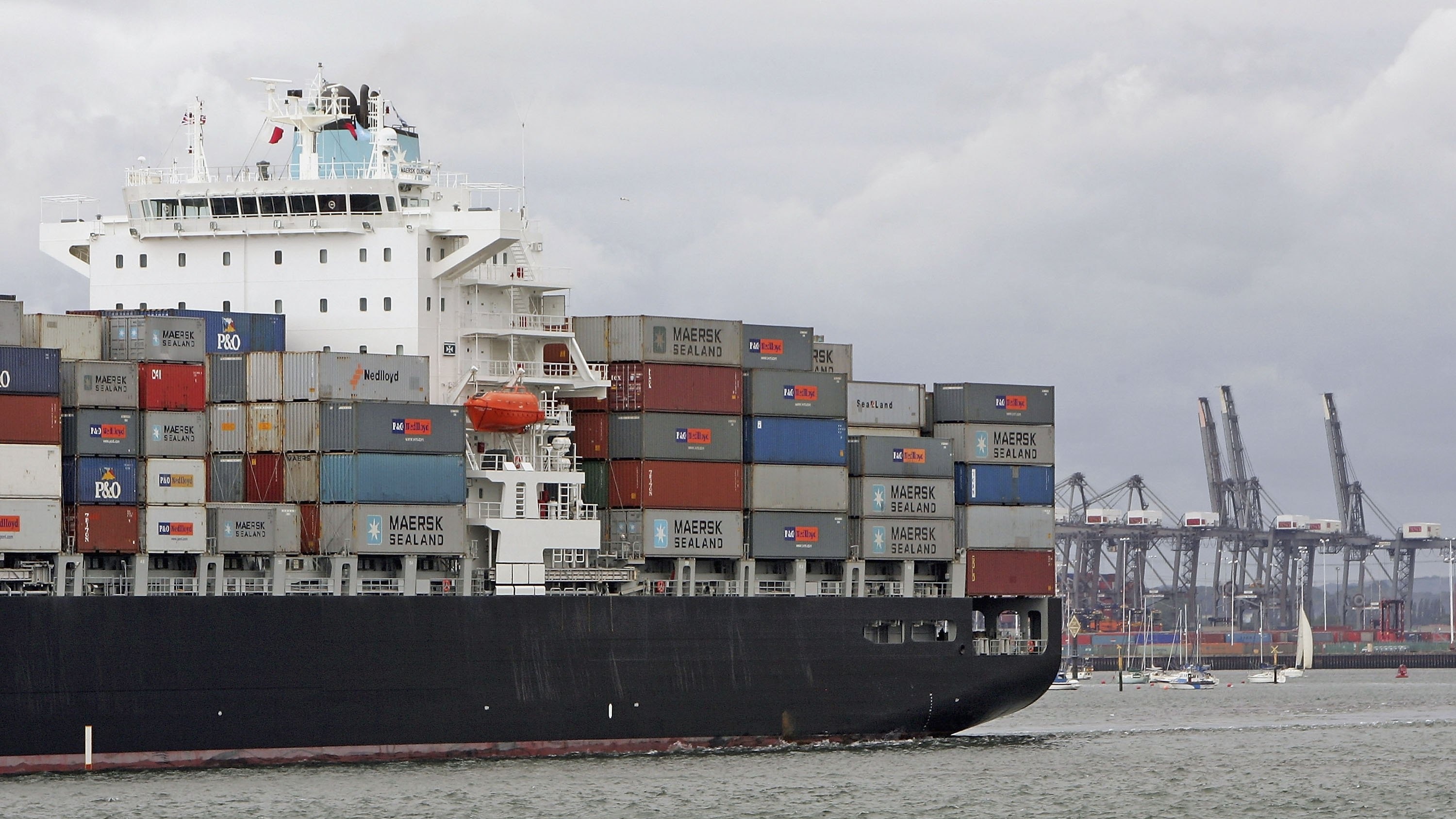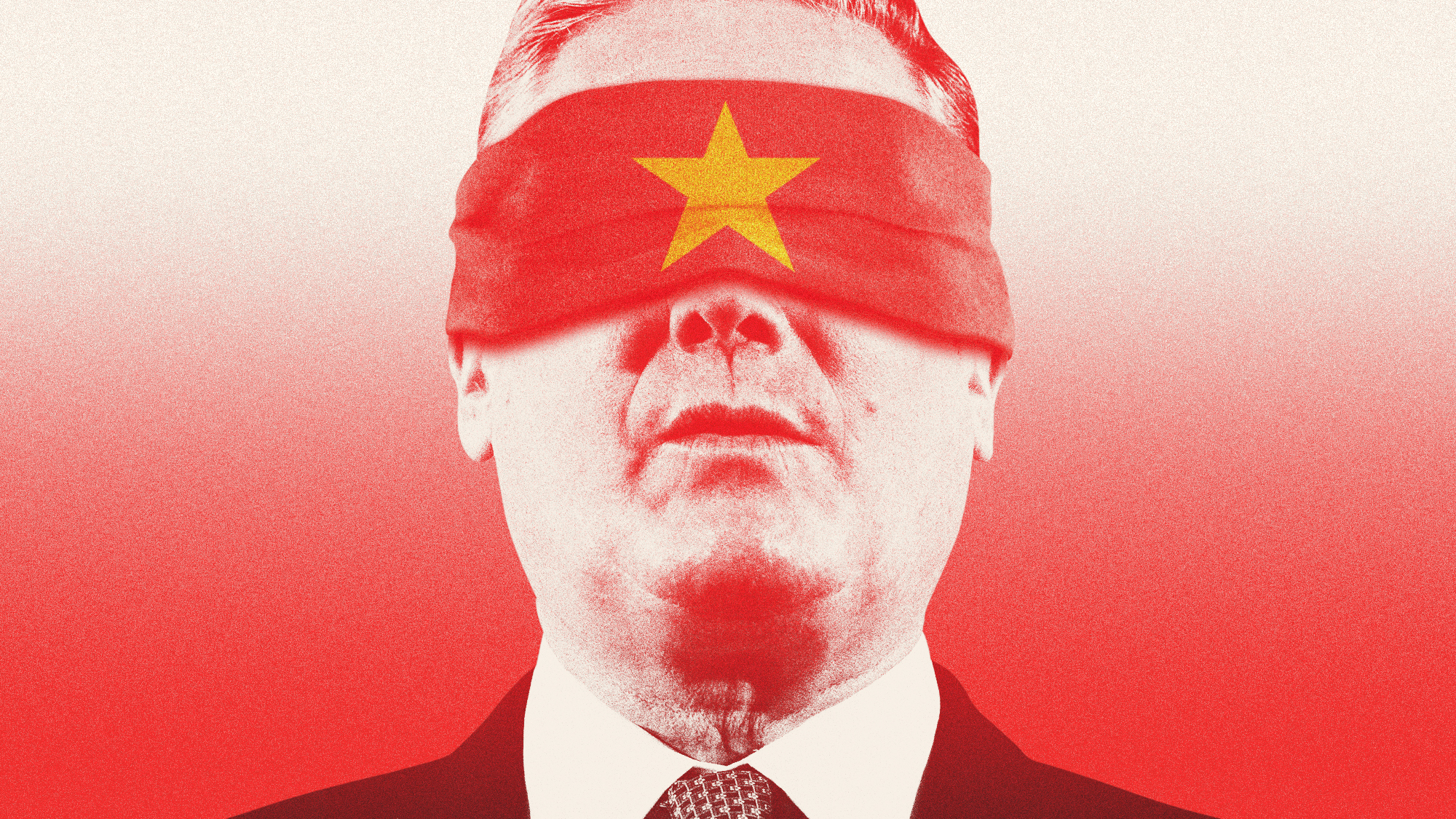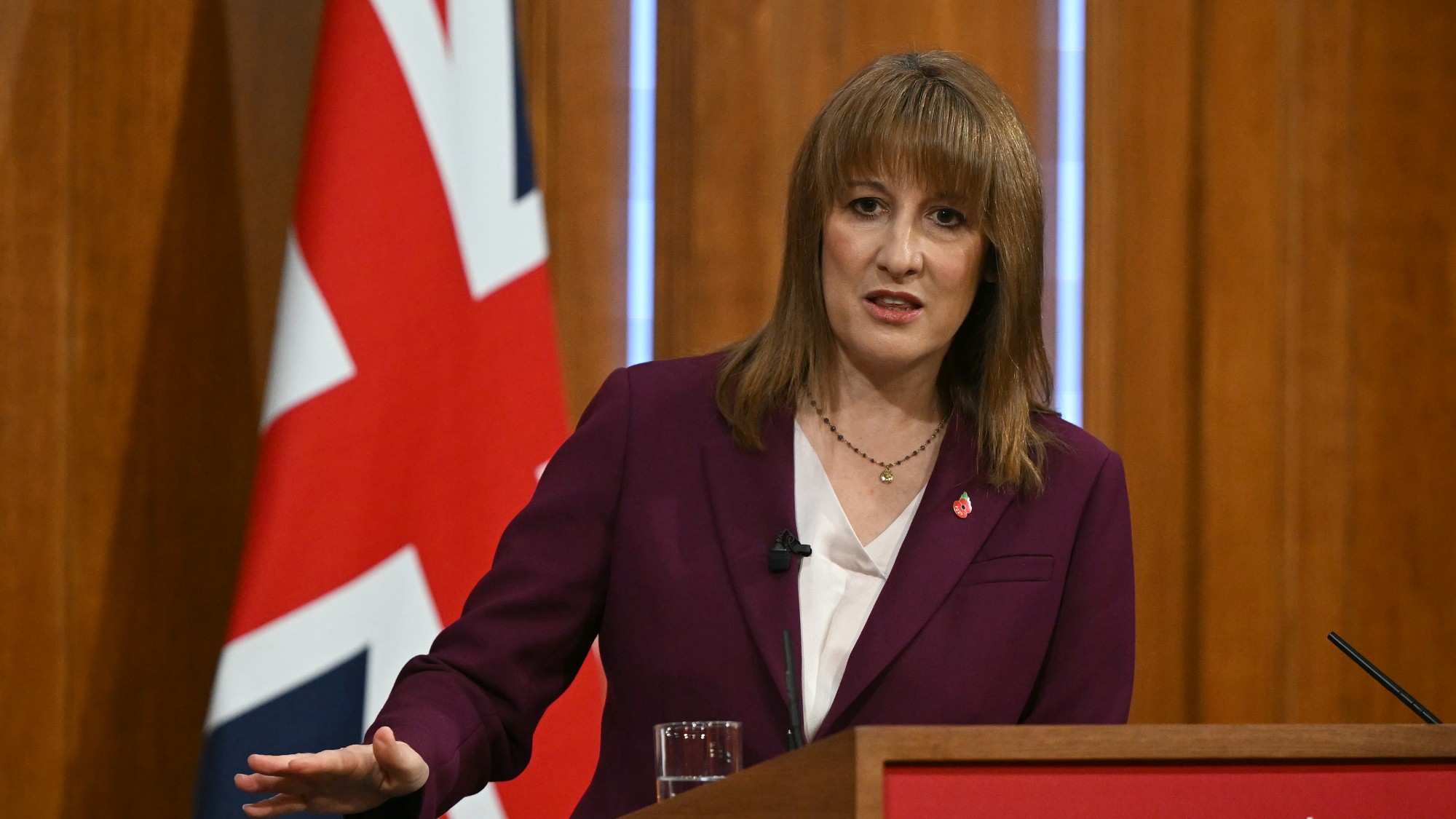Post-Brexit trade: what are freeports?
Government planning new low-tax zones in bid to boost economic growth

A free daily email with the biggest news stories of the day – and the best features from TheWeek.com
You are now subscribed
Your newsletter sign-up was successful
Boris Johnson is launching a consultation this week on plans to create ten tax-haven freeports in a bid to “supercharge” economic growth.
Belfast, Teesside and Aberdeen are among potential sites for the reduced or zero tax zones.
What is a freeport?
The Week
Escape your echo chamber. Get the facts behind the news, plus analysis from multiple perspectives.

Sign up for The Week's Free Newsletters
From our morning news briefing to a weekly Good News Newsletter, get the best of The Week delivered directly to your inbox.
From our morning news briefing to a weekly Good News Newsletter, get the best of The Week delivered directly to your inbox.
Freeports are areas designated by the government where companies pay little or no tax.
“While located geographically within a country, they essentially exist outside its borders for tax purposes,” says The Guardian.
Companies that operate within freeports can defer the payment of taxes until their products move outside that zone and enter the full UK market. And no import tax is paid if the goods are brought in to store or manufacture on site before being exported again.
Because duties are not paid on any raw materials that are imported into the area and then processed, businesses are exempt from filling out full customs declarations on imported goods.
A free daily email with the biggest news stories of the day – and the best features from TheWeek.com
What are Johnson’s proposals?
The Government is carrying out a ten-week consultation, after which areas nationwide will be invited to bid to become one of the freeport zones.
Ministers have said they hope to announce the locations of the new free trade zones later this year, with the first opening for business in 2021, says PoliticsHome.
The Government has also said measures are being considered “to reduce the costs of hiring workers working in freeport sites”, but has not specified what this might involve.
In addition, the new freeports could be used to trial customs and transport ideas before they are rolled out across the country.
The zones will be set up in former industrial communities in a bid to “supercharge” growth, Chief Treasury Secretary Rishi Sunak has said.
“They will attract new business, spreading jobs, investment and opportunity to town and cities up and down the country,” he added.–––––––––––––––––––––––––––––––For a round-up of the most important stories from around the world - and a concise, refreshing and balanced take on the week’s news agenda - try The Week magazine. Start your trial subscription today –––––––––––––––––––––––––––––––
And the reaction?
Johnson first raised the idea during his campaign to become Conservative leader, and has argued that new freeports could bring thousands of new jobs and significant investment to deprived areas.
Backing the plan this week, Business Secretary Andrea Leadsom said: “Freeports represent a fantastic opportunity for our businesses to increase their trade with companies from all over the world. Not only will they help create jobs and level up the UK but they underscore our commitment to championing global free trade, unleashing our country’s potential.”
But there have been warnings that freeports could be exploited and used as a base for money laundering and other organised crime.
A European Commission report on illicit financing found that freeports could be “potentially vulnerable to money laundering or terrorism financing” in the European single market.
European Justice Commissioner Vera Jourova said freeports were “the new emerging threat”, adding: “This is something we want to focus more on.”
Labour has also criticised the government’s proposals, with shadow chancellor John McDonnell calling freeports a “revival of a failed Thatcherite plan from the 1980s designed to cut away at regulation and our tax base”.
“There is very little solid evidence that so-called freeports create jobs or boost economic growth, showing this up as another ideological move from a far-right government,” he said.
“This plan only represents a levelling-up for the super-rich, who will use freeports to hoard assets and avoid taxes while the rest of us feel the effects of under-funded public services.”
The Liberal Democrats are equally damning of the idea. “No number of freeports can replace the economic benefits of seamless and tariff-free trade with Europe,” said Sarah Olney, the party’s business and trade spokesperson.
“Freeports don’t create new jobs or business opportunities, while their special administrative status makes them a tax-avoidance and money-laundering risk. The country needs real investment, not white elephants like freeports.”
-
 Political cartoons for February 14
Political cartoons for February 14Cartoons Saturday's political cartoons include a Valentine's grift, Hillary on the hook, and more
-
 Tourangelle-style pork with prunes recipe
Tourangelle-style pork with prunes recipeThe Week Recommends This traditional, rustic dish is a French classic
-
 The Epstein files: glimpses of a deeply disturbing world
The Epstein files: glimpses of a deeply disturbing worldIn the Spotlight Trove of released documents paint a picture of depravity and privilege in which men hold the cards, and women are powerless or peripheral
-
 How corrupt is the UK?
How corrupt is the UK?The Explainer Decline in standards ‘risks becoming a defining feature of our political culture’ as Britain falls to lowest ever score on global index
-
 Can Starmer continue to walk the Trump tightrope?
Can Starmer continue to walk the Trump tightrope?Today's Big Question PM condemns US tariff threat but is less confrontational than some European allies
-
 The high street: Britain’s next political battleground?
The high street: Britain’s next political battleground?In the Spotlight Mass closure of shops and influx of organised crime are fuelling voter anger, and offer an opening for Reform UK
-
 EU-Mercosur mega trade deal: 25 years in the making
EU-Mercosur mega trade deal: 25 years in the makingThe Explainer Despite opposition from France and Ireland among others, the ‘significant’ agreement with the South American bloc is set to finally go ahead
-
 Is Keir Starmer being hoodwinked by China?
Is Keir Starmer being hoodwinked by China?Today's Big Question PM’s attempt to separate politics and security from trade and business is ‘naïve’
-
 ‘Autarky and nostalgia aren’t cure-alls’
‘Autarky and nostalgia aren’t cure-alls’Instant Opinion Opinion, comment and editorials of the day
-
 Is a Reform-Tory pact becoming more likely?
Is a Reform-Tory pact becoming more likely?Today’s Big Question Nigel Farage’s party is ahead in the polls but still falls well short of a Commons majority, while Conservatives are still losing MPs to Reform
-
 Will Rachel Reeves’ tax U-turn be disastrous?
Will Rachel Reeves’ tax U-turn be disastrous?Today’s Big Question The chancellor scraps income tax rises for a ‘smorgasbord’ of smaller revenue-raising options